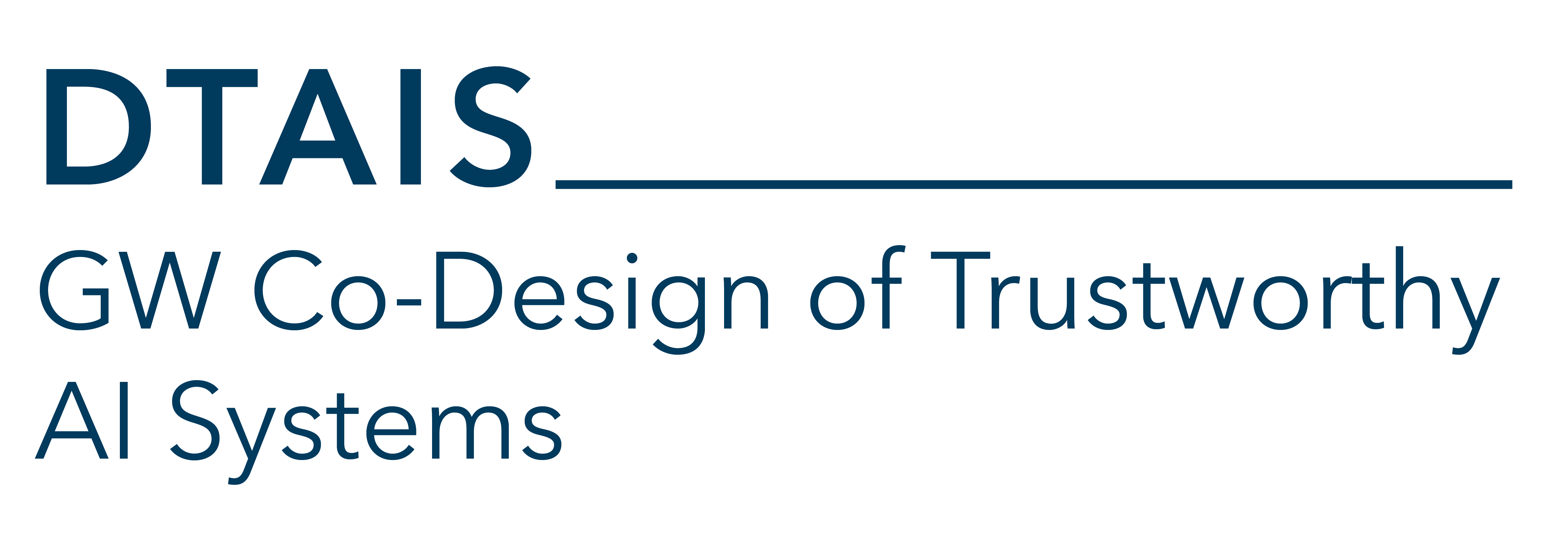Flagship Features
The goal of the NRT is to prepare the next generation of researchers to conduct groundbreaking work at the intersection of artificial intelligence and work systems design, as well as to foster a community of peers, academic mentors and professionals who support you in doing so. We achieve these goals, in part, through our flagship seminar series, intensive research-formulation boot camp and comprehensive mentoring program.
Interdisciplinary Seminar
The core of the NRT is our weekly interdisciplinary seminar, required of fellows for the first three semesters that they are in the program. The seminar brings fellows together with faculty from both of our home departments (CS and EMSE), who lead the seminar on a variety of topics related to the program by engaging with case studies, external speakers and industry and academic conferences in and around DC. Fellows and faculty will work together to find disciplinary overlap and develop a common language with which to discuss the future of AI, work systems design and concepts of trust. The close-knit seminar provides new fellows with regular access to experienced fellows and multiple professors, all of whom can provide guidance on the program and model how to think across and between disciplines. In their later years, fellows will have the opportunity to help administer the seminar, providing further leadership experience and the chance to help shape the direction of the program.
Summer Research Incubator
During the summer of their first year, DTAIS fellows undergo our intensive convergent research formulation incubator.
Over the course of ten weeks, fellows will work in interdisciplinary teams to develop and present a prototype on a research project designed by their faculty advisors to suit their interests and/or skill sets. They’ll hear from real-world practitioners through on-sites and visiting lectures about problems encountered while deploying AI in the wild. They’ll situate their given projects in the existing literature, working to develop a guiding definition of trust for their practice. As their prototypes develop, they’ll work to translate findings into presentations that are suitable for interdisciplinary and lay audiences through a series of peer and faculty critiques, typically culminating in a poster presentation to a large audience of stakeholders in the fall.
By the end of the summer, fellows will have experience transforming field observations into verifiable research questions, building socio-technical considerations into their research, balancing the concerns of multiple and conflicting stakeholders, and conveying the results of their research to audiences with varying expertise.
The boot camp is a full-time commitment and fellows should consider it their primary responsibility when planning for the summer.
Mentorship
Throughout the fellowship, DTAIS fellows are supported by a “mentoring triad” consisting of a peer mentor, faculty mentor and industry mentor. Peer mentors are fellow DTAIS students further along in the program who can provide a safe ear for questions concerning courses, research directions and succeeding in the summer research incubator. Faculty mentors are designated SEAS instructors, potentially outside your discipline, who can act as additional research sounding boards without the trappings of the traditional advisor-student relationship. Industry mentors are professionals who currently work with AI and can offer a lens on trends in industry, valuable professional skills and life after the PhD.
Mentoring triads work together to establish a meeting tempo that feels substantial but not burdensome. All fellows have the opportunity to serve as peer mentors in their later years, which builds leadership skills and supports disciplinary exchange.



